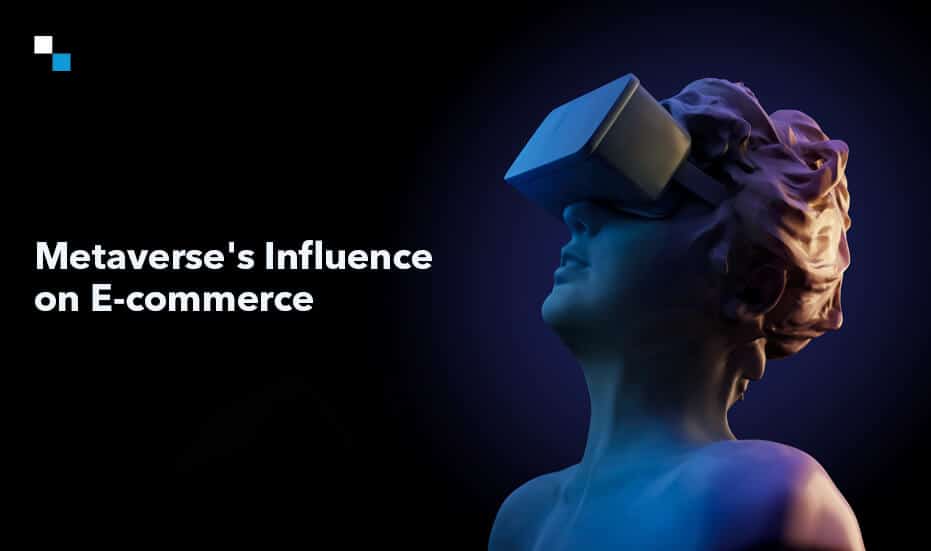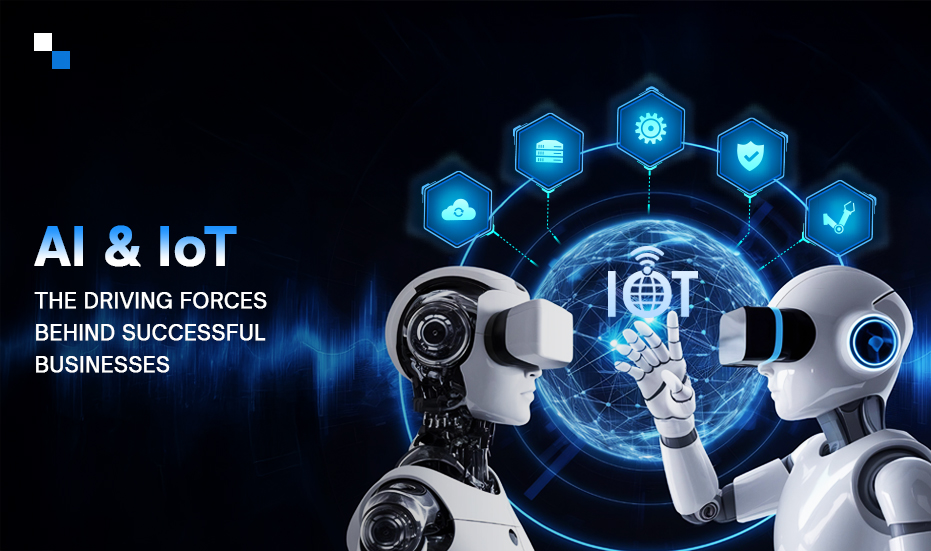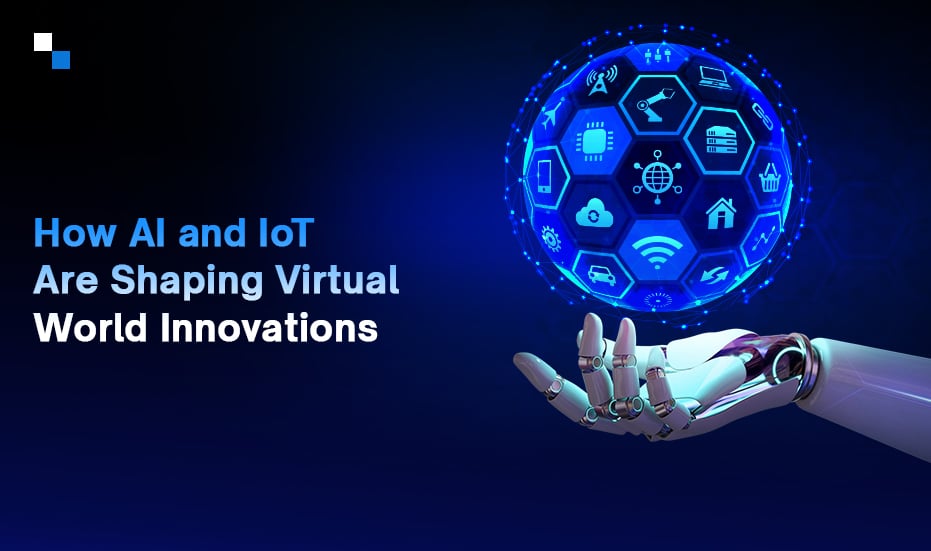
Understanding the Factors Impacting the cost of Centralized Exchange Development
January 10, 2024
How Stablecoin Development Solutions Will Reshape Lending in 2024?
January 10, 2024The metaverse is reshaping nearly every industry, and e-commerce is no exception. This digital innovation is redefining the way we shop, connect, and engage in a virtual space. Let us gain insight into the metaverse and how it is changing the e-commerce industry for good.
E-Commerce Evolution: A Brief Overview
Online shopping has continually evolved – from the early days of static websites to the dynamic and interactive platforms we use today. The metaverse takes this evolution to a whole new level, promising a more immersive and engaging shopping experience that transcends the limitations of traditional e-commerce. It is due to the huge potential of the metaverse that metaverse e-commerce platform development is gaining rapid traction and adoption worldwide.
Metaverse and E-Commerce Integration
The combination of the metaverse with e-commerce drives a paradigm shift in virtual shopping. Unlike traditional online stores, metaverse e-commerce invites users into dynamic virtual environments where they can interact with products in a three-dimensional world, explore digital storefronts, and engage in a shopping experience that replicates the physical world. Here is how the metaverse is redefining e-commerce.
- Immersive Shopping Environments
A metaverse e-commerce platform leverages technologies such as Virtual Reality (VR) and Augmented Reality (AR) to create immersive shopping environments. Users can explore virtual malls, walk through digital boutiques, and interact with products in ways previously unimaginable. This not only enhances the overall shopping experience but also creates a sense of presence and connection in the digital world.
- 3D Modeling and Product Interaction
A key component of metaverse e-commerce is the use of 3D modeling and rendering. This technology allows for the creation of real-world-like representations of products and enables users to visualize items from different angles. The interactive nature of 3D models enhances user engagement, offering a level of product exploration that goes beyond static images or descriptions.
- Personalized Avatars
A metaverse e-commerce platform often allows users to create personalized avatars, which are virtual representations of themselves, to navigate and interact within the digital space. These avatars add a social element to the shopping experience, allowing users to virtually connect with others, share recommendations, and even try on virtual clothing items to see how they look before making a purchase.
- Social Shopping Experiences
The metaverse brings a social element to online shopping. Users can shop together in real-time, share product recommendations, and even get advice from virtual friends.
Technical Innovations in Metaverse E-Commerce
Metaverse e-commerce platform development involves different aspects – from 3D designing to interface design and development. 3D artists, user interface/experience designers, and software developers work together to integrate these elements.
- Blockchain and NFTs
Blockchain technology, known for its decentralized nature and greater security, plays a crucial role in securing transactions and digital assets within the metaverse. This not only enhances the security of financial transactions but also ensures the authenticity of virtual assets.
Non-fungible tokens (NFTs), which are unique digital assets stored on a blockchain, contribute to the security and ownership of virtual items within the metaverse. From virtual real estate to digital art and in-game items, NFTs enable users to have true ownership of their digital possessions.
- Virtual Currency and Smart Contracts
The metaverse economy operates on virtual currencies, the popular ones include cryptocurrencies like Bitcoin and Ethereum. These digital currencies enable borderless transactions within the metaverse and provide users with a decentralized as well as secure way to make purchases.
Smart contracts automate and secure transactions within the metaverse. By eliminating the need for intermediaries, smart contracts streamline the payment process, reduce the risk of fraud, and contribute to a more efficient and transparent metaverse e-commerce platform.
Metaverse Marketing Strategies
Brands and retailers are exploring innovative approaches to capture the attention of users.
- Influencer Collaborations and Virtual Events
Metaverse marketing strategies often involve collaborations with virtual influencers and hosting interactive virtual events. These influencers engage with users in real-time and perform different activities like providing product recommendations, hosting virtual fashion shows, or participating in digital brand campaigns.
- Immersive Content Creation
The creation of immersive and interactive content is essential for a successful metaverse marketing strategy. Virtual fashion shows, 360-degree product showcases, and gamified shopping experiences are just a few examples of content that resonates with users in the metaverse. The goal is to create memorable and shareable experiences that leave a lasting impression.
The Metaverse Economy: Opportunities and Challenges
The integration of e-commerce into the metaverse presents a wealth of opportunities for entrepreneurs and businesses willing to embrace this futuristic landscape. However, with great opportunities come unique challenges that need to be addressed thoughtfully.
- Emerging Markets in the Metaverse
Entrepreneurs can explore emerging markets within the metaverse, such as virtual real estate, digital fashion, and virtual goods. Virtual real estate, for example, involves the buying and selling of digital land within the metaverse, providing opportunities for investment and development. Similarly, digital fashion allows users to express themselves through virtual clothing and accessories, with the potential for unique collaborations and designs that exceed the physical limitations of traditional fashion.
- Adapting to an Evolving Environment
Metaverse development requires adapting to a rapidly evolving environment. A metaverse e-commerce company must stay informed about emerging technologies, user preferences, and market trends within the metaverse. This adaptability is crucial for staying ahead of the curve and capitalizing on new opportunities.
Why Antier for Metaverse E-Commerce Platform Development?
At Antier, we stand as industry leaders in metaverse e-commerce platform development, offering unparalleled expertise and innovation to fuel your business growth. Our team of creative designers and skilled developers is well-versed in the intricacies of metaverse technology, ensuring seamless integration of your e-commerce presence into the digital world. With real-world experience delivering successful metaverse projects, we bring a wealth of experience and expertise to the table.
Connect with our subject matter experts to discuss your needs for a metaverse e-commerce platform.



